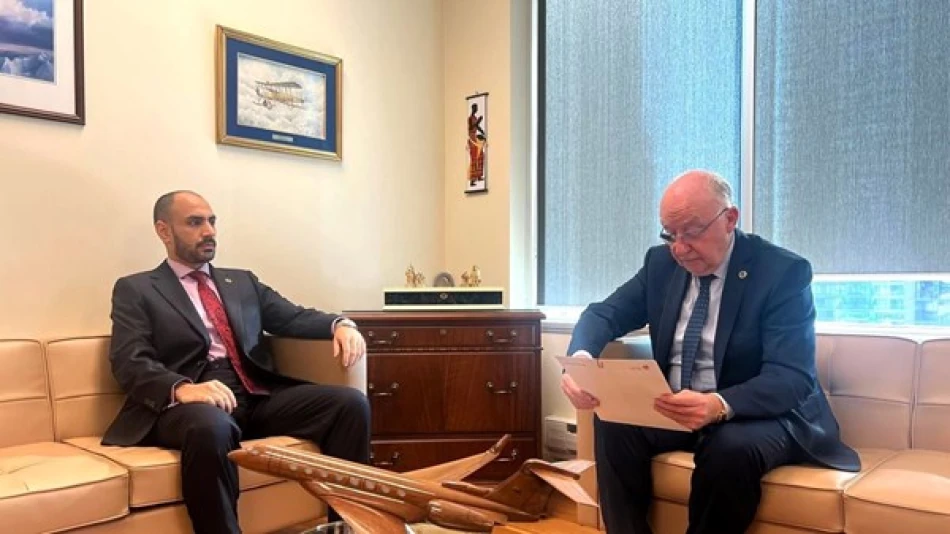
Qatar Delivers Letter to ICAO Regarding Israeli Aggression on its Territory
Qatar Files Formal Complaint with ICAO Over Alleged Israeli Airspace Violation
Qatar has escalated a September 9th incident involving alleged Israeli military action over Doha to the highest levels of international aviation governance, filing an official complaint with the International Civil Aviation Organization (ICAO). The move signals Qatar's determination to use multilateral institutions to challenge what it describes as a "flagrant violation" of its sovereignty and international aviation law.
Diplomatic Escalation Through Aviation Channels
Qatar's Permanent Representative to ICAO, Issa Abdullah Al-Maliki, delivered the formal complaint to the organization's Council President at ICAO headquarters in Montreal on Saturday. The letter specifically references the Chicago Convention on International Civil Aviation, the foundational treaty governing global airspace that has regulated international flights since 1944.
By invoking the Chicago Convention, Qatar is positioning the incident not merely as a bilateral dispute but as a violation of internationally recognized aviation sovereignty principles that could set concerning precedents for airspace security worldwide.
Strategic Timing and Regional Context
The complaint comes as Gulf states navigate increasingly complex regional security dynamics. Qatar's decision to formalize the incident through ICAO rather than pursue purely diplomatic channels suggests the emirate views the alleged violation as part of broader regional tensions that require international oversight.
ICAO's Limited Enforcement Powers
While ICAO serves as the United Nations' specialized agency for aviation matters, its primary role involves setting standards and recommended practices rather than enforcement. The organization can investigate violations and issue findings, but lacks the authority to impose sanctions or military consequences. Qatar's complaint is likely aimed more at creating an official record and applying diplomatic pressure than achieving immediate punitive measures.
Implications for Regional Aviation Security
The incident highlights growing concerns about airspace violations in the Middle East, where military operations and civilian aviation increasingly intersect. Similar complaints have emerged from other regional conflicts, with aviation authorities worldwide grappling with how to maintain civilian flight safety amid escalating military tensions.
For international airlines operating in the region, such incidents underscore the ongoing risks of Middle Eastern flight corridors, potentially affecting route planning and insurance costs for carriers serving Gulf destinations.
Qatar's Calculated Response
Qatar's formal reservation of "all its rights under international law" in the complaint suggests the emirate may pursue additional legal or diplomatic remedies beyond the ICAO filing. This measured but firm response reflects Qatar's broader strategy of leveraging international institutions to protect its interests while avoiding direct military confrontation.
The complaint also reinforces Qatar's position as a neutral mediator in regional conflicts, emphasizing its commitment to international law and multilateral dispute resolution mechanisms.
Most Viewed News

 Layla Al Mansoori
Layla Al Mansoori






